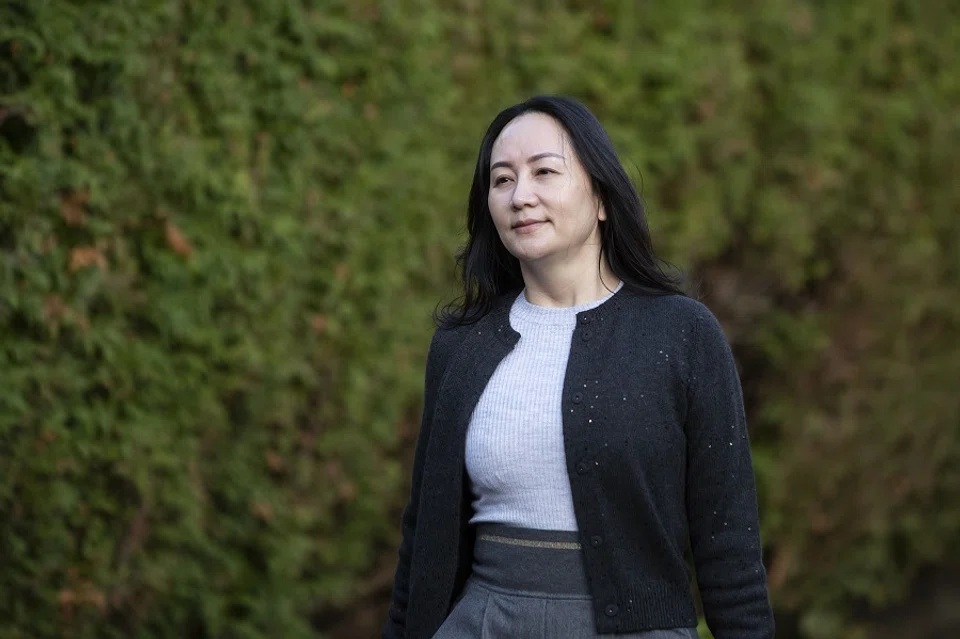Huawei's Meng Wanzhou: Can Canada rectify a bad start?
The arrest of Huawei's CFO Meng Wanzhou in Vancouver in December 2018 brought China-Canada relations to an all-time low. But the recent round of hearings in which the Canadian judge agreed to admit new evidence may turn things around. Hong Kong academic Wang Jiangyu says that China might now be getting their hopes up that Canada will not simply do the bidding of the US.

In the most recent round of extradition hearings concerning Huawei's CFO Meng Wanzhou in end-October, the Supreme Court of British Columbia handed Meng a small win by allowing some new evidence in favour of Meng to be presented in the future proceedings of this case.
The Meng Wanzhou case, starting with Canada's arrest of Meng in December 2018, has been coloured by Cold War-style geopolitics from the very beginning. What is taking place after Meng's detention in Canada demonstrates that the arrest was the prelude to a prolonged drama pitting the world's only superpower against Huawei, a China-based telecom company which happens to be the global leader in 5G technologies.
Meng's detention has significantly solidified the mistrust of Canada's justice system in China...

Meng's detention has significantly solidified the mistrust of Canada's justice system in China as many Chinese increasingly believe that Canadian law enforcement authorities are simply being used to help the US achieve geopolitical objectives through purging Meng, the daughter of Huawei's founder Ren Zhengfei. After all, President Trump himself offered unequivocal remarks about how he intended to use the Meng Wanzhou case as a bargaining chip in trade negotiations with China. A closer watch of the legal process in Canada may however enable us to make some more nuanced observations about this case. Here are three interesting takeaways.
First, the testimonials of the witnesses clearly suggest abuse of process by Canadian law enforcement officers. Contrary to the requirement of the arrest warrant that Meng should be "immediately" placed in custody, the Royal Canadian Mounted Policy (RCMP) officers waited for three hours after Meng got off her flight to effect her arrest. Such a delay was necessary to leave some time for Meng to be questioned and her electronic devices and passwords seized by border officers without proper legal representation, under the pretence of a routine immigration examination. This clearly violated Meng's rights guaranteed under the Canadian Charter of Rights and Freedoms which is part of Canada's Constitution.
Further, the border officer who collected the passcodes to Meng's electronic devices "mistakenly" handed them to the RCMP which did not have jurisdiction - and hence should not have had access to Meng's devices - during the three-hour detention before Meng's formal arrest. Irrespective of whether the court would allow the extradition case to be dismissed on these grounds at this stage, it becomes impossible to dismiss the abuse of process claims.

It is almost equally difficult to dispel the suspicion that Canadian law enforcement officers did all this for the purpose of gathering evidence to assist the American investigation of a fraud case against Meng, which is widely believed to have geopolitical objectives. Although the Canadian court dismissed Meng's request to have certain documents disclosed to reveal the actual role of the Federal Bureau of Investigation (FBI) of the US in this process, a holistic and balanced evaluation of the overall situation by a reasonable person would most likely conclude that the arrest of Meng is a joint and collaborated effort by law enforcement agencies in the US and Canada.
More significantly, without the role of the US properly clarified through more transparency and disclosure of information, the few procedural irregularities in the process of Meng's arrest have already led Chinese leaders - and to a large extent, the Chinese people - to suspect that the Canadian government is purposely and willingly helping the US to launch a new Cold War to contain China's development through this case.
Canadian authorities now seen in better light
Third, one should recognise that this round of hearings has ably demonstrated the independence of Canada's judicial system. Observers around the world, including many in China, have noticed how the hearings permitted the lawyers representing Meng to make forceful and politically unconstrained legal arguments against Canada's attorney general. It was exactly through the cross-examination process which is an inherent part of Canada's justice system that the defence lawyers put Canada's law enforcement officers on the spot to testify and admit the "mistakes" they made, whether purposely or not, in violation of Meng's constitutional rights under Canadian law.
The Canadian judge, siding with the attorney general that Meng's arguments were not strong enough to warrant an immediate dismissal of the case, nevertheless agreed to the defence lawyers' request to admit some important evidence which she believed to be "realistically capable of challenging the reliability" of the US request for extradition. The evidence in question includes several missing slides in a PowerPoint presentation which Meng allegedly made to HSBC officers. The slides, which were allegedly purposely excluded by the US authorities, may prove that Meng did not lie about Huawei's business relationship with Skycom in Iran in her presentation to HSBC.
... the October trial of Meng Wanzhou case offers welcoming signs that maybe the Canadian judiciary can be relied upon to come up with a fair solution to this case, although it was an obvious mistake for the Canadian law enforcement authorities to arrest Meng in the first place.

The Meng Wanzhou case has brought bilateral relations to the lowest level since diplomatic relations were established between China and Canada. Harsh and even hateful words have been exchanged between politicians and media in the two countries. In this context, the October trial of Meng Wanzhou case offers welcoming signs that maybe the Canadian judiciary can be relied upon to come up with a fair solution to this case, although it was an obvious mistake for the Canadian law enforcement authorities to arrest Meng in the first place.





